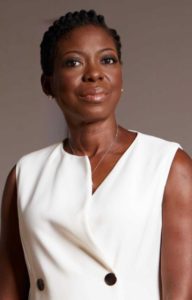Overview
Tema Metropolis is one of the two metropolises among the twenty-nine (29) districts of the Greater Accra Region, which is in the southeastern part of Ghana.
Tema comprises two constituencies, Tema Central and Tema East. For administrative purposes, each of these is further divided into two submetros, namely Tema North and Tema South in Tema Central, and Community One and Manhean in Tema East.
Tema Metropolis is bounded in the north-east by Ashaiman Municipality, in the north-west by Adentan Municipality, on the west by Ledzokuku-Krowor Municipality, on the east by the Kpone-Katamanso District and on the south by the Gulf of Guinea.
The estimated 2024 population of Tema Metropolis is 194,646 as projected from the 2020 census, distributed as below:
Table 1: 2024 Population Demography, Tema Metro
| Age Groups | % POP DIST BY AGE GROUP | COMMUNITY ONE | MANHEAN | TEMA NORTH | TEMA SOUTH | TOTAL |
|---|---|---|---|---|---|---|
| CHILDREN 0-11 MONTHS | 4 | 814 | 3258 | 2600 | 1114 | 7786 |
| CHILDREN 12-23 MONTHS | 7.7 | 1568 | 6271 | 5004 | 2145 | 14988 |
| CHILDREN 24-59 MONTHS | 8.3 | 1690 | 6760 | 5394 | 2312 | 16156 |
| CHILDREN 5-14 YEARS | 20 | 4072 | 16289 | 12998 | 5571 | 38929 |
| WIFA 15-49 YEARS | 24 | 4886 | 19547 | 15597 | 6685 | 46715 |
| MEN 15-49 YEARS | 23.5 | 4785 | 19139 | 15272 | 6545 | 45742 |
| MEN/WOMEN 50-60 | 6.5 | 1323 | 5294 | 4224 | 1810 | 12652 |
| MEN/WOMEN 60+ | 6 | 1222 | 4887 | 3899 | 1671 | 11679 |
| TOTAL | 100 | 20,360 | 81444 | 64989 | 27853 | 194646 |
| % POPULATION | 10 | 42 | 33 | 14 | 100 | |
| EXPECTED PREGNANCY | 4 | 814 | 3258 | 2600 | 1114 | 7786 |
History, Ethnicity and Cultural Characteristics
Tema derives its name from the original settlement named Torman, inhabited mainly by fishermen and farmers. Torman, in the indigenous Ga language (tor- man), literally means gourd- town and is so-named on account of the extensive cultivation of gourds in the area in the past. The native Ga tribe is organized into two paramount chieftaincies, Tema Traditional Area and Kpone Traditional Area, each with its council of chiefs and elders. However, with the creation of the new Kpone-Katamanso district, the latter has been severed from the Tema Metropolis.
Apart from the original Ga tribe, the population now comprises many other ethnic groups who trooped in soon after the bconstruction of the harbour-city by Dr. Kwame Nkrumah, when the industrial and commercial employment opportunities created drew people from all parts of Ghana and beyond. Consequently, the population is a multi-ethnic, multicultural and cosmopolitan society with tribes from nearly all regions of the country represented. The dominant ethnic groups are the Dangmes, Ewes, Nzemas, Akans (mainly Fantis), Dagombas, Gonjas, Dagartis and Frafras. Thus, in addition to the indigenous Ga traditional leadership structures, many settler tribes have installed their own tribal chiefs, elders and queen mothers, providing their respective tribal groups with varying degrees of organization and leadership. This feature, coupled with various groupings along religious, trade, workplace and social lines provide potentially immense facilitation of health programmes, by way of community entry, social mobilization and health promotion.
Health Infrastructure
The following Ghana Health Service (public) facilities provide preventive and curative services: 1. Tema Metropolitan Health Directorate
2. Tema General Hospital
3. Manhean Polyclinic
4. Tema Health Centre
6. Tema Port Health Services
A summary of the health facilities in the Metropolis are summarized in the table below:
Table 2: Facility Type and Ownership
| Facility Type | Government | Private | Grand Total |
|---|---|---|---|
| CHPS | 32 | 0 | 32 |
| Clinic | 1 | 13 | 14 |
| Hospital | 1 | 10 | 11 |
| Polyclinic | 1 | 0 | 1 |
| Maternity Home | 0 | 1 | 1 |
| Grand Total | 35 | 24 | 59 |
Tema Metropolis has 32 CHPS zones with 5 CHPS compounds in the Tema East sub- metro. Frequently recorded OPD diseases in the health facilities include Respiratory Tract Illnesses (RTIs), Hypertension, Cardiovascular Accidents (CVA), Urinary Tract Infections (UTIs), malaria, anaemia and gynaecological conditions.
The Metropolis has a number of health care challenges including high maternal mortality and stillbirth rates, frequent epidemic disease outbreaks, low childhood immunization and child healthcare coverage, human resource deficits and inadequate health infrastructure.
Political and Administrative Leadership
Tema Metropolis has 32 electoral areas, each with an elected Assembly Member who represents the community members at the Tema Metropolitan Assembly (TMA). The Assembly is headed by the Metropolitan Chief Executive or Mayor, who is appointed by the President of Ghana.
An extensive coverage of Police services ensures law and order in the Metropolis.



